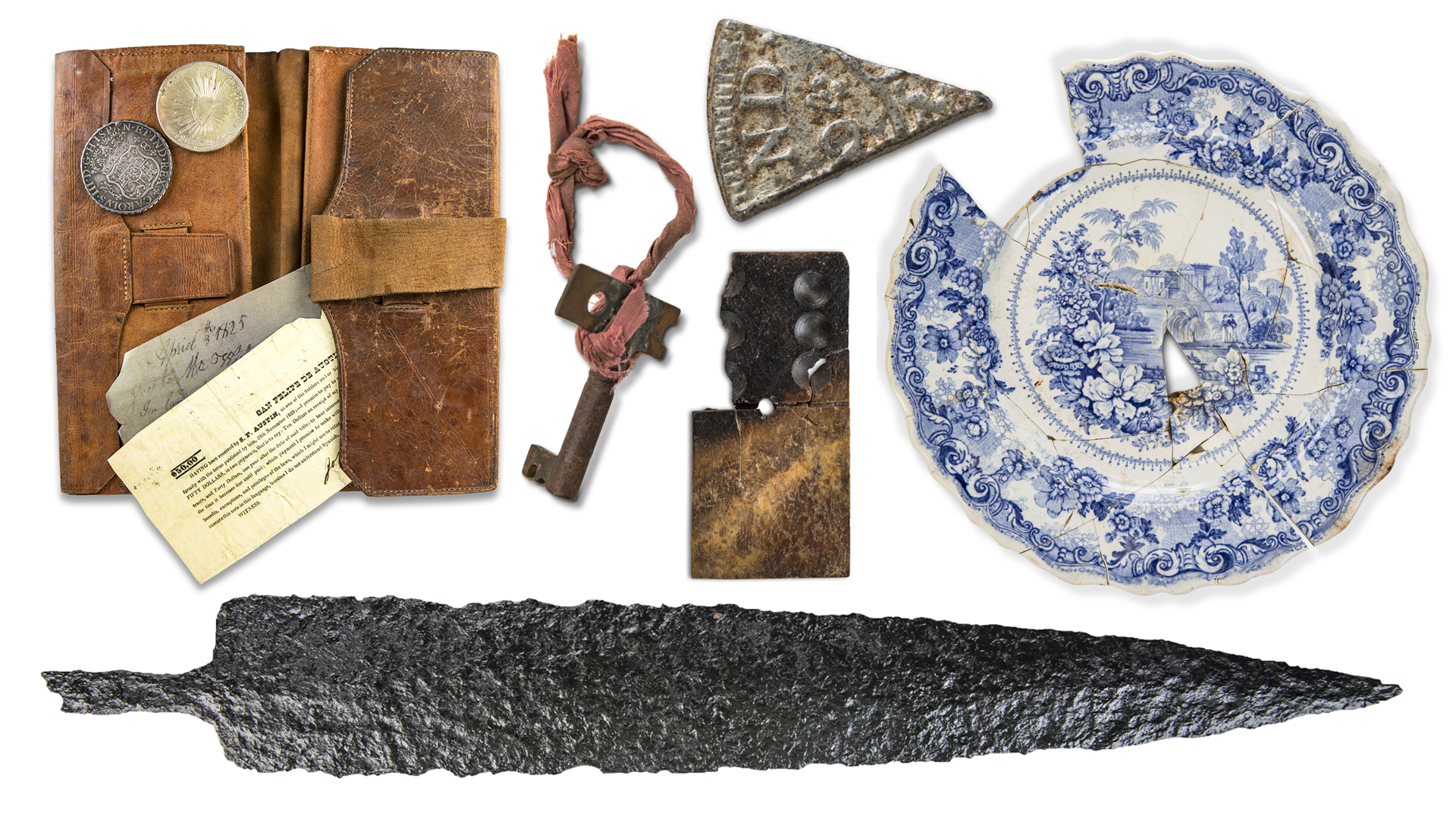
The Curatorial Facility Certification Program ensures that facilities meet current museum standards pertinent to the care and management of held-in-trust collections.
Archeological investigations on non-federal public lands in Texas yield a profusion of artifacts. Literally millions of these pieces of our heritage, such as prehistoric stone tools and pottery, together with related documents, now reside in museums and other repositories across the state. By law, however, the state of Texas owns them.
The Antiquities Code of Texas designates the Texas Historical Commission (THC) as the entity charged with ensuring the proper care and management of archeological collections obtained under a Texas Antiquities Permit on non-federal public lands. These public lands include lands owned by the state of Texas or by political subdivisions of the state, such as cities, counties, school districts, and other special districts. Because the THC is a small agency and cannot possibly house and care for all the collections, it transfers stewardship of them to curatorial facilities across the state.
To make certain these held-in-trust collections are cared for properly, the THC has initiated a certification program for curatorial facilities. The Curatorial Facility Certification Program ensures that the facilities meet current museum standards pertinent to the care and management of collections. The ultimate goal of the certification program is the preservation of Texas' irreplaceable archeological collections for future research or display in museums.
Please refer to the Forms section for the Curatorial Facility Certification Program application, the Handbook regarding the program requirements, and additional program documents. For more information, please refer to the Curatorial Facility Certification FAQ below.
Note: All curatorial facilities wishing to continue to accept state-associated, held-in-trust collections must be certified.
Curatorial Facility Certification FAQ
- What is the purpose of the certification program?
- What does the program address?
- What collections does the program apply to?
- Which curatorial facilities are eligible to apply for certification?
- What are the costs of certification?
- How long is certification valid?
Q: What is the purpose of the certification program?
A: The purpose of the Texas Historical Commission Curatorial Facility Certification Program is to recognize and support current professional standards for the care and management of state-associated held-in-trust collections maintained by curatorial facilities in the State of Texas.
Q: What does the program address?
A: The program addresses all collections placed in curatorial facilities by the THC, all collections generated under antiquities permits on public lands and all curatorial facilities seeking to receive state-associated held-in-trust collections. The program also is open to any curatorial facility that simply wishes to demonstrate its level of professional achievement.
Q: What collections does the program apply to?
A: The program applies to:
- Permitted-collections that are the result of work governed by the Antiquities Code on land or under waters belonging to the State of Texas or a political subdivision of the State necessitating the issuance of a permit by the Commission. This work can be conducted by an outside researcher, other state agency, cultural resources management firm or by Commission personnel. Permitted-collections form the bulk of the Commission's state-associated held-in-trust collections.
- Commission non-permitted collections are the result of work governed by the Antiquities Code on land or under waters belonging to the State of Texas or a political subdivision of the State conducted by Commission personnel without the issuance of a permit.
- Purchased-collections are the result of acquisition of significant historical items by the Commission through the Texas Historical Artifacts Acquisition Program or use of other state funds.
- Donated-collections are the result of a material gift transaction by a private landowner, individual, corporation, organization, or through a bequest to the Commission. A major component of this category of collections is the consequence of work conducted by or under the direction of Commission personnel on private lands in Texas whereby the landowner transfers ownership of the generated collection through a deed-of-gift or donation form to the State of Texas and its agent, the Texas Historical Commission.
- Court action-collections are the result of rulings by a court concerning confiscated, illegally-held archeological or historical materials from public lands to be given to the Commission for care and protection.
- Legislative action-collections that are awarded to the Commission through legislative action such as House Bill 12, 80th Leg., Reg. Ses., 2007, which transferred 18 historic sites and all of their collections from the TPWD to the THC.
Q: Which curatorial facilities are eligible to apply for certification?
A: Eligibility requirements are as follows:
- Fit the definition of a museum or repository
- Have a written Mission Statement, Statement of Purpose and Scope-of Collections
- Have a written Collections Management Policy
If the curatorial facility does not meet all of these requirements, it will not proceed further with the certification process.
Q: What are the costs of certification?
A: There is no cost to the curatorial facility to participate in the certification process.
Q: How long is certification valid?
A: Certification is for a 10-year period. At the end of this time, the curatorial facility is invited by THC to apply for renewal of certification.
Contact Us
If you have questions about the Curatorial Facility Certification Program, please contact the program administrator using the information listed here.
-
Phone:
+1 512-463-5865 -
Email:
cfcp@thc.texas.gov -
Address:
P.O. Box 12276
Austin, TX 78711
United States
